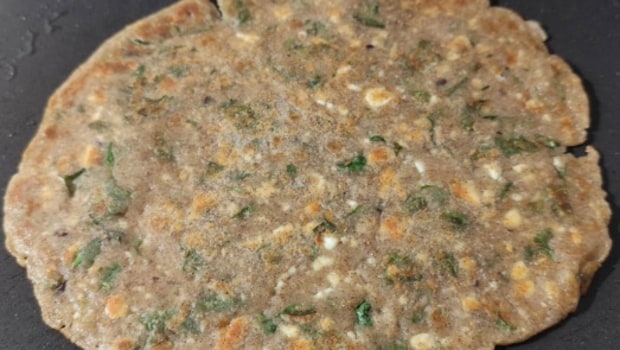Tips for Healthier Grains: In an age of superfoods and supplements, many of us overlook the simplest dietary tweak: rotating our grains based on what our bodies truly need. Nutritionist Leema Mahajan recently shared a thoughtful post on Instagram that has inspired many to revisit their flour jar with new respect. Her message is clear - our ancestors had it right. Choosing the right grain can be a subtle but powerful act of self-care. Let's explore how different traditional Indian grains - long valued in Ayurveda - can support your health.
Also Read: 7 Roti Mistakes You Did Not Even Realise You Were Making
How to choose flour for roti as per your health condition:
Barley (Jau)
Best for: Blood sugar management & heart health
With its low glycaemic load and rich beta-glucan content, barley is excellent for stabilising blood sugar and lowering cholesterol. If you're diabetic or managing high cholesterol, a barley roti a few times a week can make a noticeable difference.
Samak (Barnyard Millet)
Best for: Summer detox & sensitive digestion
Light, cooling, and easy to digest, samak is perfect for those muggy summer months when heavy grains feel overwhelming. If you experience bloating, nausea, or loss of appetite in the heat - or are dealing with low iron - samak is a gentle companion.
Bajra (Pearl Millet)
Best for: Winter warmth & iron deficiency
Thick, earthy, and deeply satisfying, bajra roti is a winter staple in many Indian homes. Rich in iron and deeply warming, it's ideal for those with anaemia or a sluggish metabolism during colder months. here are some tips to make perfect bajra roti.
Amaranth (Rajgira)
Best for: Thyroid support & gluten sensitivity
Naturally gluten-free and a powerhouse of selenium and protein, amaranth is ideal for those managing thyroid conditions or hormone imbalances. Its nutty flavour also adds variety to your roti routine.
Ragi (Finger Millet)

Health Benefits of Various Grains: Ragi roti is a nutritious addition to your diet.
Best for: Bone health & growing children
Packed with natural calcium and vitamin D, ragi is a must for children, post-menopausal women, and older adults. A soft ragi roti with ghee and jaggery? Both delicious and functional.
Jowar (Sorghum)
Best for: Digestive issues & constipation
Rich in insoluble fibre, jowar helps keep your digestive system running smoothly. If you often feel constipated or sluggish after meals, jowar rotis can bring welcome relief. Here's how to make soft jowar roti.
Khapli (Emmer Wheat)
Best for: Wheat sensitivity & gut health
Khapli is an ancient, low-gluten wheat variety that's far gentler than modern wheat. If regular atta leaves you bloated or heavy, switch to khapli - it could transform your relationship with rotis.
Also Read: Upgrade Your Everyday Rotis With These 5 Easy And Flavourful Recipes
Swapping your roti grain isn't a diet trend, it's a return to eating with intention. Listen to your body, observe the seasons, and trust that your kitchen can be your pharmacy. Sometimes, the simplest meals are the most healing.
So, what's on your plate today?
(Disclaimer: Except for the headline, this story has not been edited by NDTV staff and is published from a syndicated feed.)
About Neha GroverLove for reading roused her writing instincts. Neha is guilty of having a deep-set fixation with anything caffeinated. When she is not pouring out her nest of thoughts onto the screen, you can see her reading while sipping on coffee.










